abortion
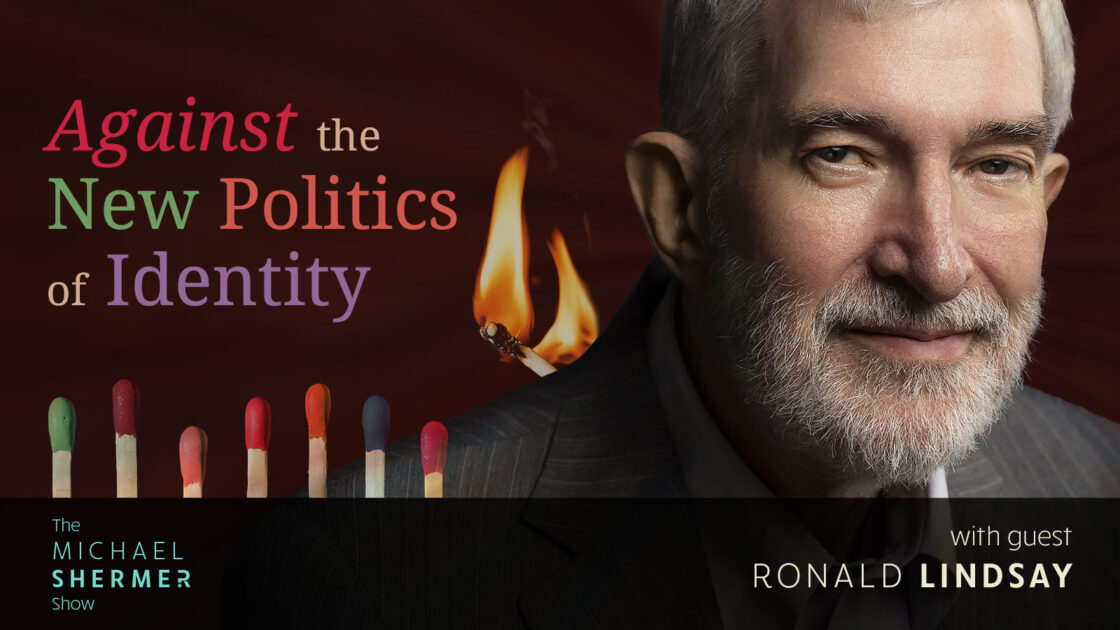
Shermer and Lindsay discuss: identity politics: identity or politics? • woke ideology • overt racism vs. systemic racism • liberalism vs. illiberalism • woke progressive leftists motivations? • Critical Race Theory (CRT) • Diversity, Equity and Inclusion (DEI) • What is progressive? What is woke? • standpoint epistemology • equality vs. equity • race • class • cancel culture • Christian nationalism.
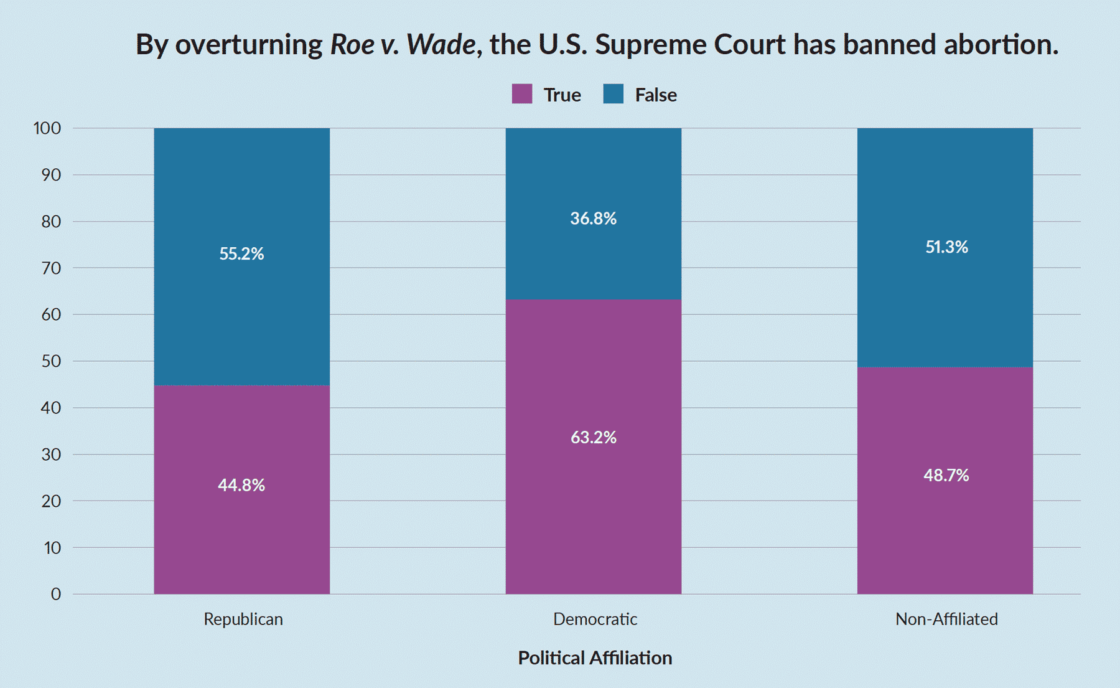
Our survey of a diverse sample of U.S. adults following the Supreme Court striking down Roe v. Wade found both extremes — always legal or never legal – unpopular; 70% favored an intermediate position. Importantly, only 37% understood that the decision did not outlaw abortion. Those younger, less educated, more religious, and more trusting of political figures tended to be less knowledgeable.

Shermer and Mandel discuss: the problem of woke ideology • anecdotes vs. data about woke actions and intentions • sex and gender • woke medicine • transgender affirming care • government vs. private responses to social movements and ideas • Trump, DeSantis, Liz Cheney, the Lincoln Project, and other GOP issues • abortion: pro-Choice or pro-Life? • support for children: government or private? • What is “the left” and how does it differ from liberalism, classical liberalism, and libertarianism? •…
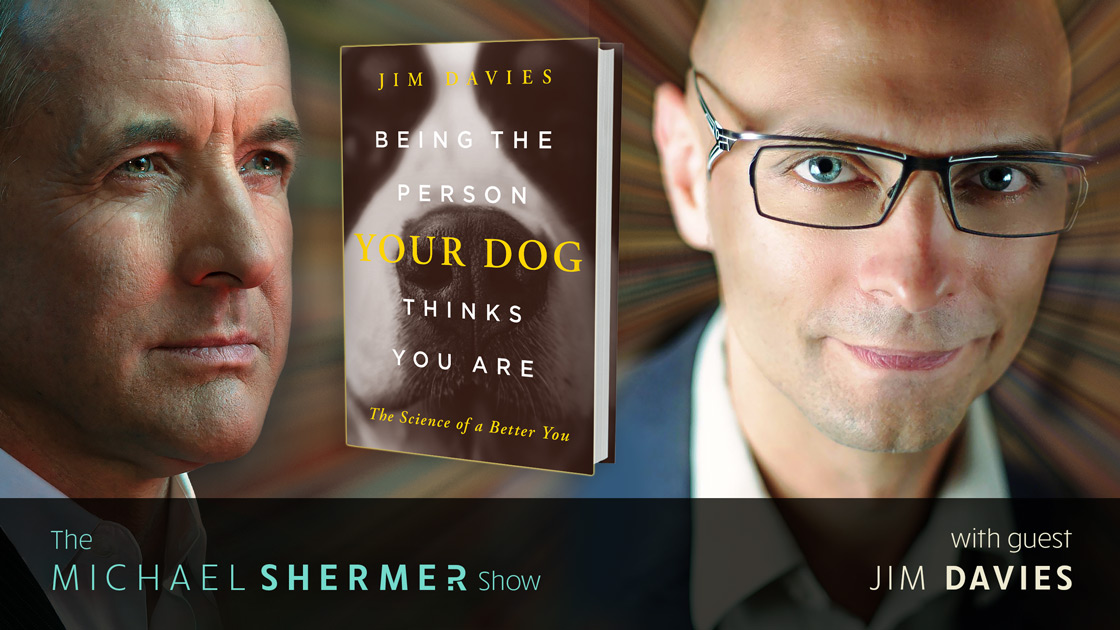
Shermer and Davies discuss: • an operational definition of the “good life” or “happiness” or “well being” • utilitarianism vs. deontology vs. virtue ethics • effective altruism • marriage and children • objective moral values • Do we have a moral obligation to help those who cannot help themselves? • Does America have a moral obligation to help oppressed peoples in dictatorships? • immigration • abortion • the welfare state • prostitution • reparations.
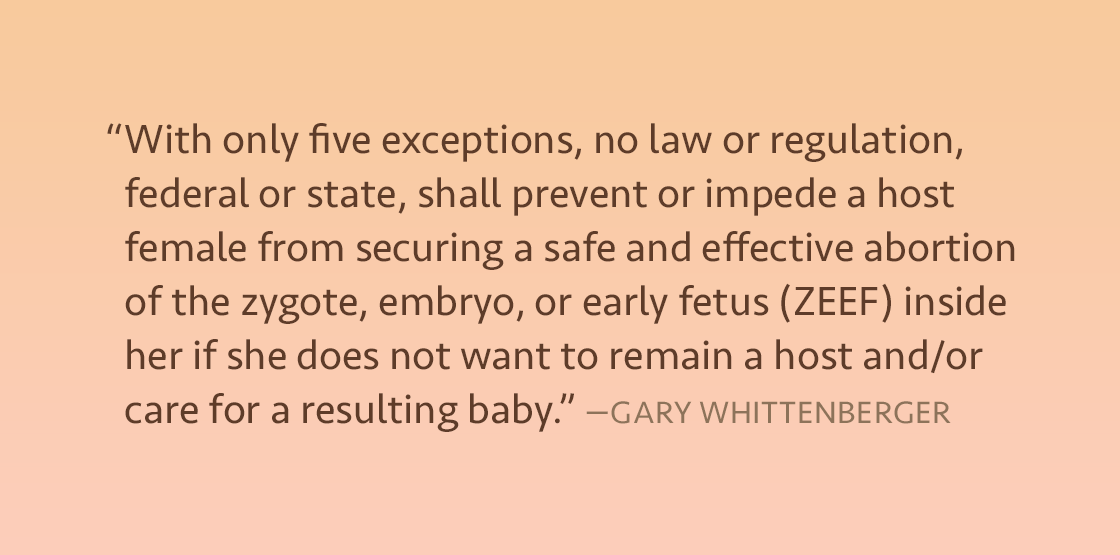
When does life begin? It is the question at the core of the abortion debate, and is the focus of this article that makes the case that abortion should be legal at the very least in the first trimester and into the second trimester, based on the science behind when a fetus becomes a sentient being and thus, arguably, a legal person. Legally, it is persons who are protected by laws, not potential persons in the form of a small…

Shermer and Akst discuss: war • the left (old and new) • religious liberals • American Firsters and Isolationists • cluster of heterodoxy: anti-war/militarism, but also anti-racism, anti-capitalism, anti-colonialism, anti-apartheid, anti-power of the state, pro-labor, pro the rights of minorities, individual liberty on matters such as abortion and gender, anti-segregation • internment of 110,000 Japanese-Americans into concentration camps • civil disobedience (Thoreau, Garrison, Gandhi) • non-violent protests • moral equivalency • Just War Theory • Military Industrial Complex • moral…
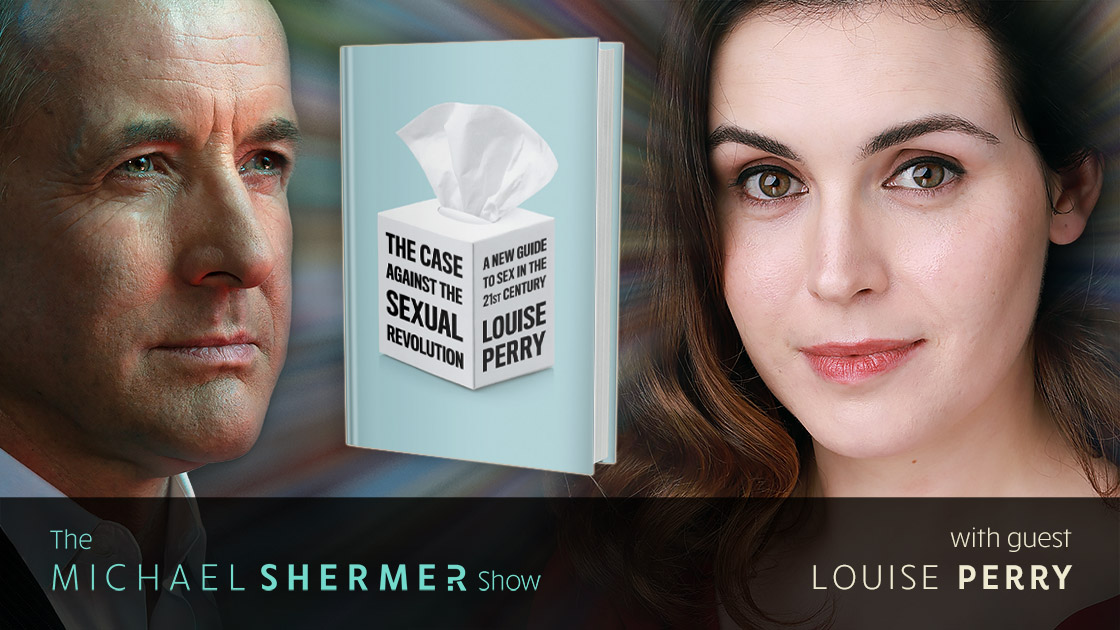
Shermer and Perry discuss: What was the sexual revolution? • feminism: first wave, second wave, third wave, and beyond • the evolutionary psychology of sex differences • experiencing self vs. remembered self • individual freedom vs. societal good • monogamy vs. polygamy • marriage vs. domestic partnerships • Why is the government in the marriage business? • BDSM and sexual violence • autogynephilia • trans matters • abortion matters.
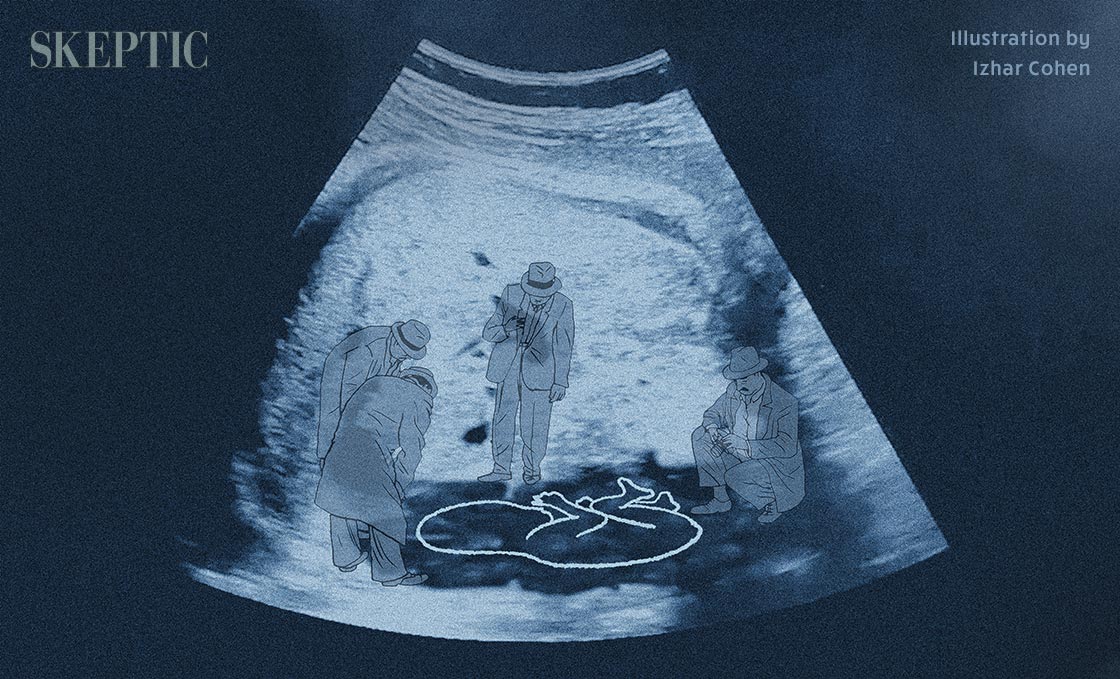
Abortion is one of the most relevant issues of our time. As with many other subjects capable of arousing strong emotion, people tend to assume that the U.S. public is evenly divided, in this case between the “pro-choice” and “pro-life” positions. And some frequently cited polling would lead you to believe that it is indeed […]
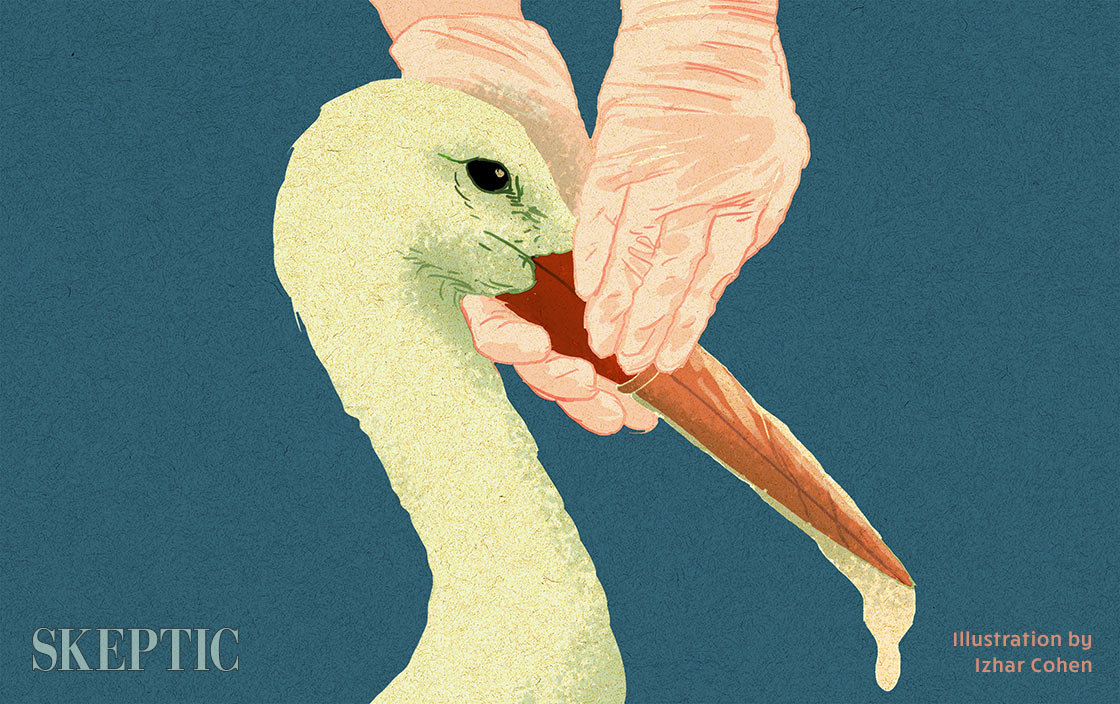
The Pro-Life vs. Pro-Choice positions on the contentious abortion issue outline the terms of the debate. In this article Michael Shermer defends the position of choice and women’s reproductive rights as the most moral and rational position, even while acknowledging that Pro-Life proponents have good arguments. Ultimately this issues comes down to conflicting rights, namely those of the unborn fetus to live and those of the mother to choose what is best for her life. As in most matters in…
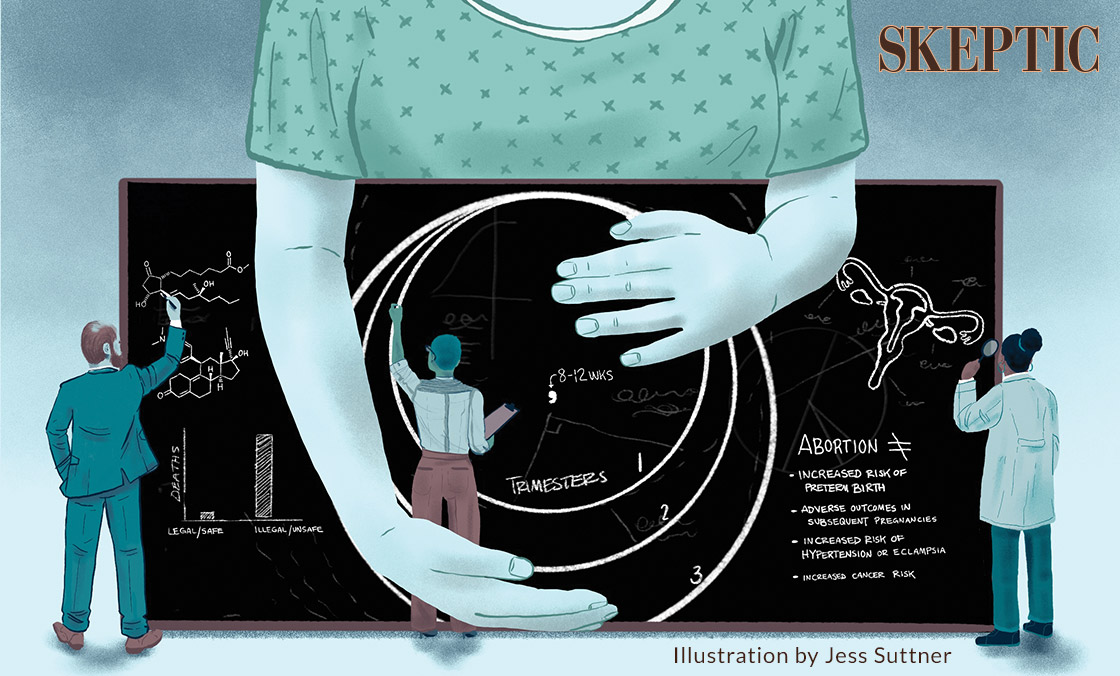
The issue of abortion has never been more polarizing and much of the controversy surrounds medical claims about the procedure which Harriet Hall, MD (aka the SkepDoc) addresses in this article for our special issue on Abortion Matters. What does medical science say about when life begins? When can a fetus survive outside the body of the mother? When does the fetal heartbeat become detectable? What are the short-term and long-term consequences of undergoing an abortion? What are the risks…
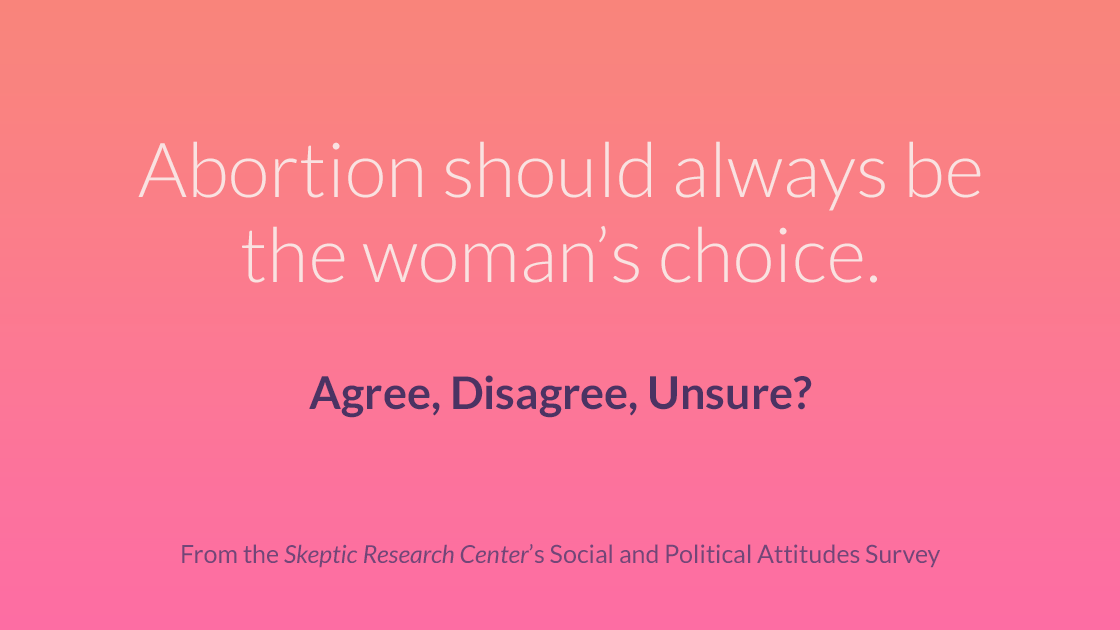
Although abortion is often framed as a women’s issue, men make up half of the electorate and are more often pro-life. In this study the Skeptic Research Center report on men’s attitudes toward abortion is considered in the larger context of the national abortion debate, which has intensified since the Supreme Court overturned the 1973 Roe v. Wade decision guaranteeing women a Constitutional right to choose abortion.
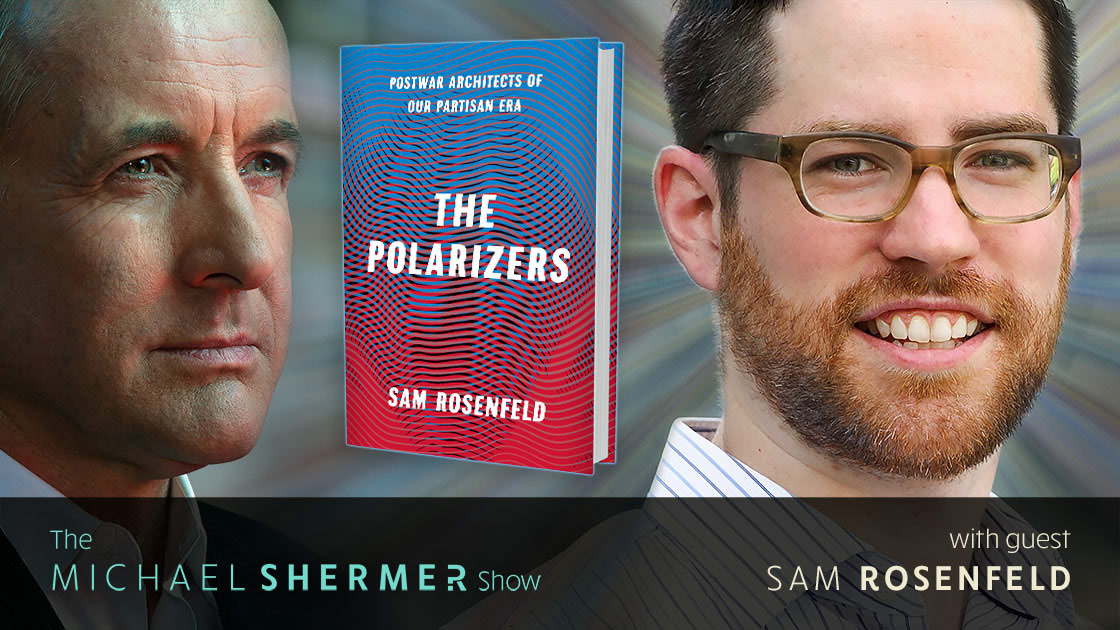
Shermer and Rosenfeld discuss: why we have a duopoly • gerrymandering • voting restrictions • how we know all elections are not rigged • abortion • immigration • US foreign policy • the rise of conservative and liberal think tanks • ideology • political polarization • political leanings of industrialists vs. tech billionaires and rural poor vs. urban poor • Trump and 2016, 2020, and 2024 (are we facing civil unrest as never seen before?)…
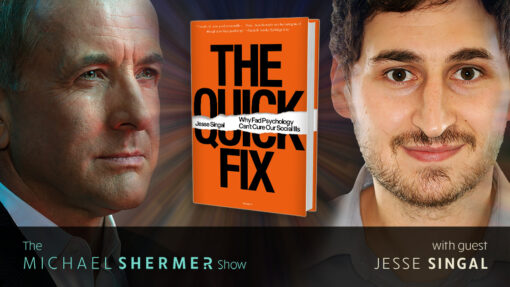
Michael Shermer and Jesse Singal discuss: how social scientists determine causality • cognitive priming • The Malcolm Gladwell-effect • self-help movements • power posing • positive psychology • Implicit Association Test • racism, gender, class, misogyny, bigotry • replication crisis • choice architecture • I.Q. • free will and determinism • nature/nurture and how lives turn out • abortion • and U.S. foreign policy.
Michael Shermer speaks with Jesse Singal about this new book: Why Fad Psychology Can’t Cure Our Social Ills.

In episode 215, Michael Shermer speaks with Mary Eberstadt about the decline of religion in which Eberstadt presents her alternative theory for the “secularization thesis” (that the undermining of the family has undermined Christianity itself). In the second half, they discuss the rise of identity politics and how identitarians track and expose the ideologically impure, as people face the consequences of their rancor.
In episode 215, Michael Shermer speaks with Mary Eberstadt about the decline of religion in which Eberstadt presents her alternative theory for the “secularization thesis” (that the undermining of the family has undermined Christianity itself). In the second half, they discuss the rise of identity politics and how identitarians track and expose the ideologically impure, as people face the consequences of their rancor.
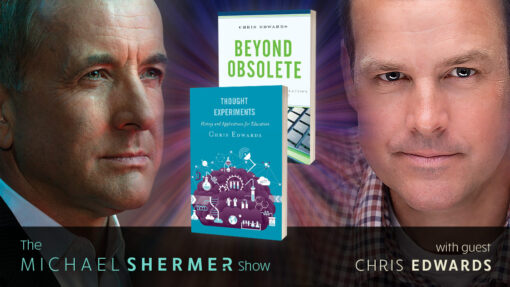
Michael Shermer speaks with Chris Edwards about educational reform, his study and teaching of world history, the problems in K–12 education, the zip-code model vs. the seat time model of education and how they result in massively different educational outcomes, how “no child left behind” left children behind, federal vs. state educational systems, and more…
In episode 193, Michael Shermer speaks with Chris Edwards about educational reform and thought experiments. Plus, Harriet Hall, M.D. discusses osteopathy. What is it? What is the difference between an MD and a DO? Should the DO degree be abolished?
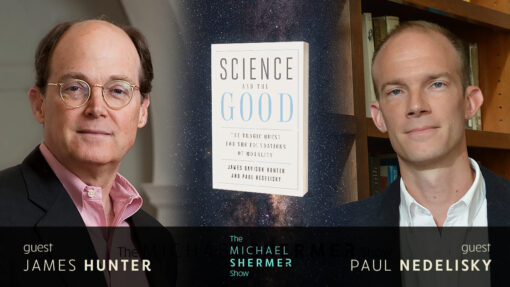
Professional philosophers James Hunter and Paul Nedelisky trace the origins and development of the centuries-long, passionate, but ultimately “failed quest” to discover a scientific foundation for morality. The conversation takes a decidedly interesting turn when Drs. Hunter and Nedelisky revealed, unbeknownst to Dr. Shermer, that they are both theists and that their Christian worldview informs their thinking on moral issues.
In episode 178 of Michael Shermer’s podcast, Michael speaks with philosophers James Hunter and Paul Nedelisky about religious vs. secular morality and their book Science and the Good: The Tragic Quest for the Foundations of Morality.
NEXT →
























